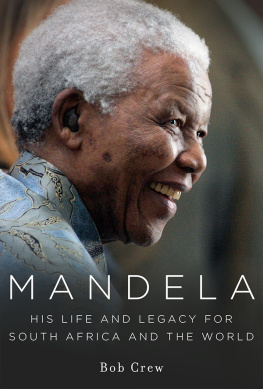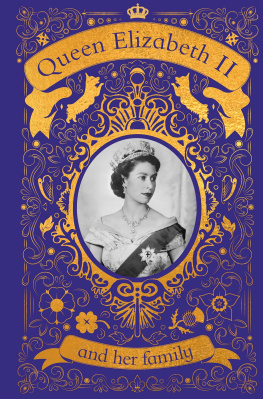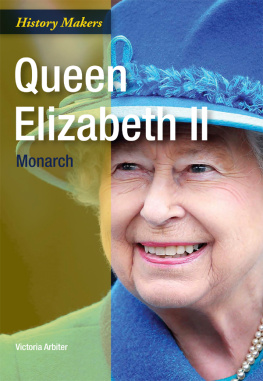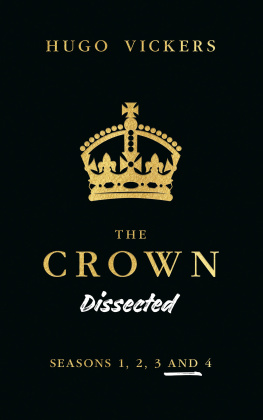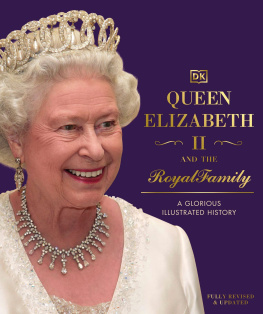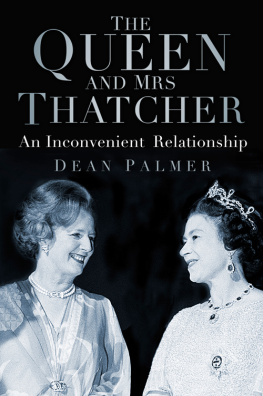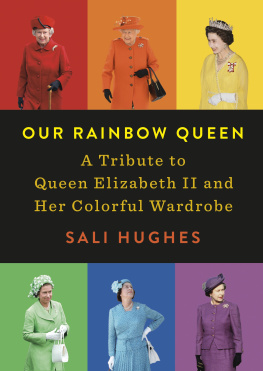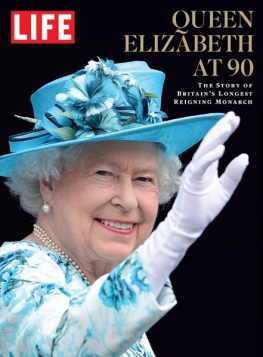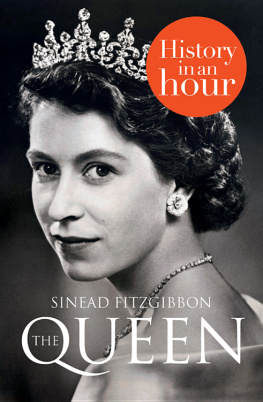Title Page
BRITAINS TELEVISION QUEEN
Bob Crew
Legal Information
First edition published in 2012
Copyright 2012 Bob Crew
The right of Bob Crew to be identified as the author of this work has been asserted by him in accordance with the Copyright, Designs and Patents Act 1998.
All rights reserved. No reproduction, copy or transmission of this publication may be made without express prior written permission. No paragraph of this publication may be reproduced, copied or transmitted except with express prior written permission or in accordance with the provisions of the Copyright Act 1956 (as amended). Any person who commits any unauthorized act in relation to this publication may be liable to criminal prosecution and civil claims for damage.
The opinions expressed herein are those of the author and do not necessarily represent those of MX Publishing, Andrews UK Limited or any of their employees or affiliates.
Originally published in the UK by MX Publishing
335 Princess Park Manor, Royal Drive, London, N11 3GX
www.mxpublishing.com
Digital version converted and published in 2012 by
Andrews UK Limited
www.andrewsuk.com
Whilst every attempt has been made to contact the relevant copyright holders, where some were unobtainable, we would be grateful if the appropriate people would contact us.
Cover design by
www.staunch.com
Dedication
To the fans of Queen Elizabeth II and all who take an intelligent interest in the times in which we live, as well as to the memory of all who were involved in making and telling the history of television in Britain, where the worlds first televised images were invented, as well as the worlds first public service television (to avid TV viewers also).
Preface
Whilst Queen Elizabeth II will be remembered for other things besides television, it seems to me that the jewel in her crown in the 20 th and 21 st centuries has certainly been television, as we shall discover in these pages.
This is because she has existed for her people more visibly and more powerfully on their television screens than anywhere else - and continues to do so to this day, of course - having gone out of her way to invite the television cameras into her life, at the expense of losing much if not most of her royal mystique.
She has moved with the times and also ahead of the times where television has been concerned, but she has not been given sufficient credit for this. On the contrary, she has too often been perceived as one who has been harassed and given no peace by television and the rest of the media, with which she has reluctantly come to terms, regarding it at best as a necessary evil.
But when we take a closer look, we see that the reverse is true, that she has very willingly embraced television from the outset of her reign (and why should she not?), making British monarchy fit for purpose in the 21 st century, and developing a mutually rewarding relationship between royalty and television.
For sure, television has been a double-edged sword, but that has not deterred her from wielding this sword in her best interests.
This book is written in order to demonstrate this, for the interest, not only of royalists and the borderline fans of British royals, but for all who take an intelligent interest in the times in which we live, and in the role of the media and royalty to that end.
So this is a book for general readers as well as royalists and the fans of royalty, for avid TV viewers and history buffs (contemporary history and the history of television science) and for media studies students perhaps, not to mention American, European and other tourists coming to London for the Diamond Jubilee this year, who may be interested to know about the television phenomenon that is Britains television queen today.
The distinction is made in these pages between royalists and fans of royalty, with the former being those who consider themselves born royalists - die-hard patriots who have been born into staunchly royalist families, perhaps for generations - and others who have become fans without being born royalists, but both considering British royalty a class-act that is preferable to republicanism.
Whether we and the foremost British royals like it or not, they are these days all media icons of one kind or another and this is as a result of Queen Elizabeth II embracing television as she has, for the reasons that she has.
But this is not at all how things were when Elizabeth first came to her throne in 1952, since when the face of British broadcasting, royalty and society at large has been changed beyond all recognition. It has been changed not least by Queen Elizabeth agreeing to her coronation being televised - when her advisors were warning her against the big bad television beast - as well as agreeing to participate in a goodly number other television programmes besides.
One suspects that it goes against the grain with traditional royalists that todays royals have lost their mystique in order to join the ranks of the television icons - so many of whom are trashy media icons that are ten a penny these days - but on the other hand, a greater number of fans are well pleased with their royals as TV-icons, since it is largely through the familiarity of these fans with their royals on their television screens, that they have become fans in the first place - fans of facsimile royals, maybe, but better than no royals at all where they are concerned.
That Queen Elizabeth and Buckingham Palace have no problem with this is suggested by the fact that they have willingly gone along with it in order to stay in touch with the greatest number of people, not just their royalist admirers, but also and more importantly with the public at large, among whom they have so many more admirers.
All this gives rise to such questions as:
Where would British television be today without its royals to boost its ratings with millions of viewers (not so much those who view the news, and would view it anyway, with or without the inclusion of royals, but others viewing the special programmes about British royals)?
How would TV look today without a regular royal presence on our screens, given that British royals make so much news, entertainment and feature material?
How do British royals compare with other TV-icons?
These are chief among the questions addressed in this book, as British television and British monarchy feed on each other.
As one who has lived through these times and spent the greater part of his adult life in the media - and also had some previous experience of royals (HRH Prince Charles, the heir apparent, and HRH Princess Anne, the Princess Royal) - I suppose that I can address these and other questions in these pages with some authority.
In the media I have been a correspondent with The Times and Financial Times and I have also interviewed Prince Charles in a military history that I have written about Britains Gurkha soldiers now in its third edition.
As we shall see in chapter one, I first wrote about British royals when I was The Times correspondent in Saudi Arabia in the 1970s where Queen Elizabeth was advised by the British ambassador in Jeddah and subsequently by her foreign secretary to stay on her royal yacht during a state visit to the desert kingdom because of the Saudis undignified handling of women.
I broke this story long before my Gurkha book featuring Prince Charles in 2003.
I was also presented to Princess Anne as one of a reception party that showed her round some newly-opened premises at the University of London of which she is Chancellor - and where I am a member of Congregation - and when in conversation with her on that occasion I gained some fleeting but useful insights into her personality, attitudes and character, as we shall see in chapter three.
Next page

